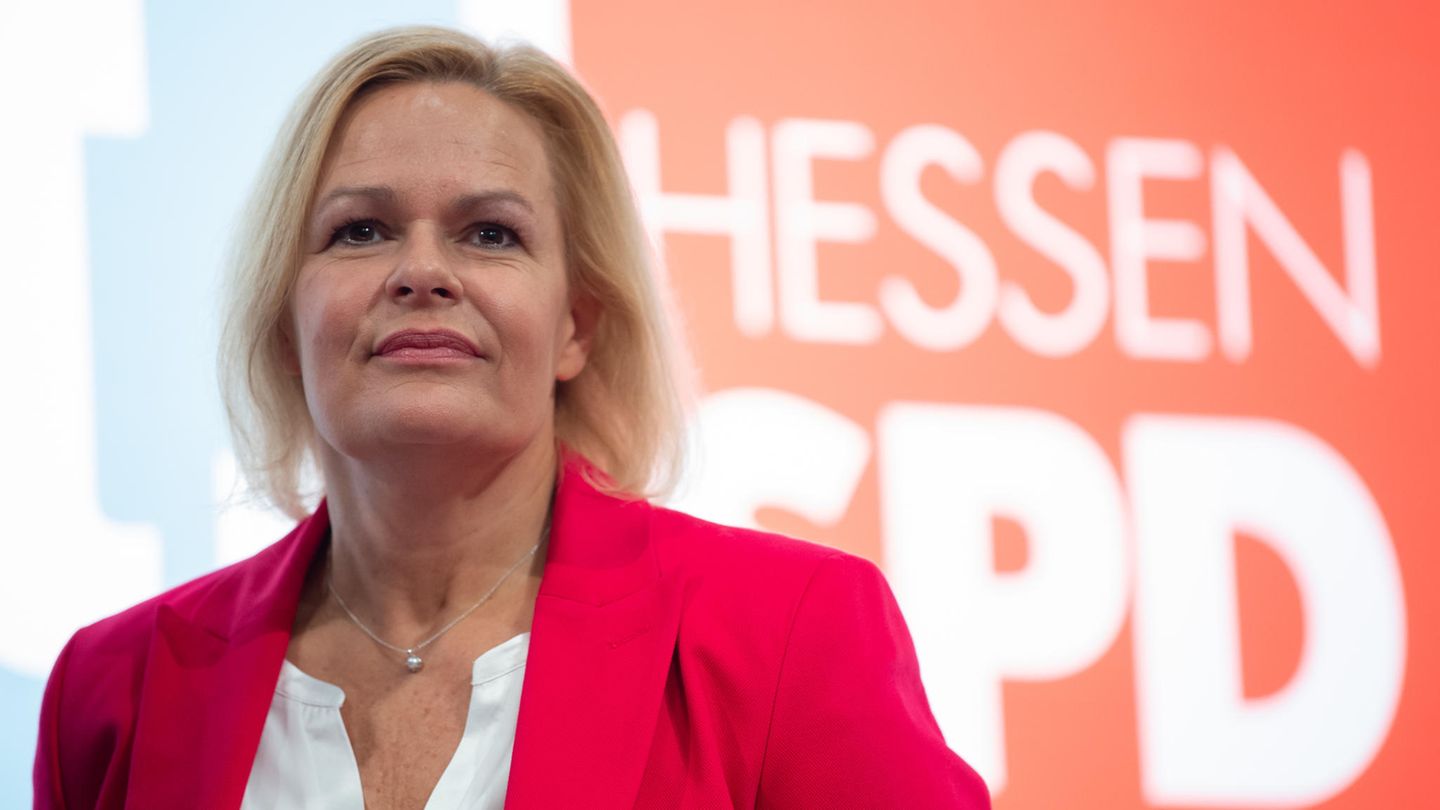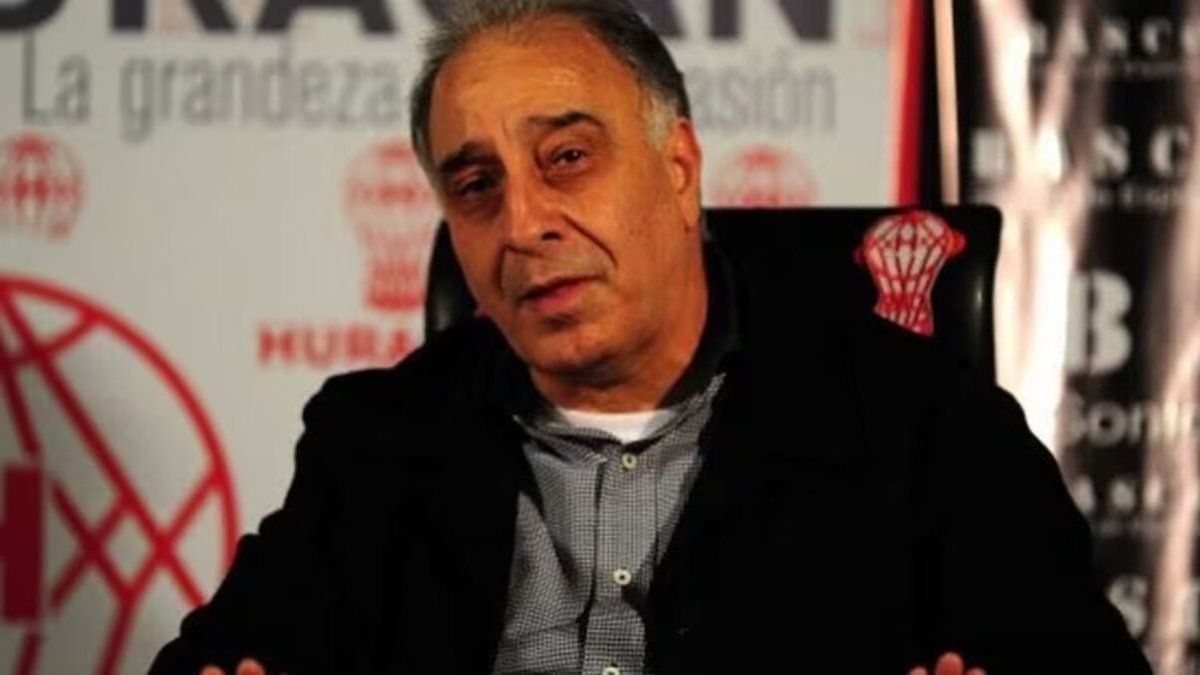Federal minister and SPD top candidate: That’s possible, says Nancy Faeser, and the chancellor has the backing for it. The move is controversial and not risk-free. Not for Olaf Scholz either.
What had been causing speculation for days is now official: Nancy Faeser wants to become the SPD’s top candidate for the Hessian state elections on October 8, while remaining Federal Minister of the Interior in Berlin – and only moving to Wiesbaden if she becomes Prime Minister.
“Just as I am the first woman to hold the position of Federal Minister of the Interior, I would like to be the first woman to head the Hessian state government”. “I compete to win.” She became clearer in the conversation with the which had appeared shortly before: “I was already the leader of the opposition,” said Faeser. “If the voters decide otherwise, I will continue to fulfill my responsibility as Federal Minister of the Interior.”
This Friday, she is to be officially named the top candidate at the SPD’s traditional “Hesse Summit”. The comrades there should be relieved that after months of speculation about their intentions, Faeser is finally making a clean sweep. The SPD state chairman is the only promising candidate, especially since the competition has long since named their front runner. The Hessian Social Democrats are starting the election campaign with a lot of delay.
In doing so, the SPD in Hesse is obviously also building on the federal minister’s official bonus, because only a few campaign appearances are planned. “Now is not the time to campaign,” said Faeser, referring to the war in Ukraine. However, the circumstance is probably also due to her future dual role of leading a state election campaign from now on, while at the same time she heads a ministry with around 85,000 employees and 19 authorities. It should be a feat.
Nancy Faeser has “full support”
Of course, there is no shortage of tasks in Faeser’s ministry. She is responsible for internal security, the fight against cybercrime, civil and constitutional protection, and migration. Faeser leads an authority that is always in demand – whether in the fight against “Reich citizens” or the accommodation of refugees. To name just a few current debates. In addition, the SPD in Hesse will have to stretch to cross the finish line as the winner: in the last one, the party was five percentage points behind the CDU and level with the Greens – but the survey is from October last year.
Despite everything, Faeser was convinced that the state balancing act is possible. She had “taken responsibility for a very difficult office in very difficult times,” she told the “Spiegel”, and this responsibility requires “that I fulfill my tasks as clearly and seriously as before”. Doubts about this are raised even from the ranks of the traffic light coalition: “In times like this, you can’t dance at two political weddings at the same time”, the “double burden that is now emerging, which will last for months” must not be at the expense of the country’s internal security.
For her actions, Faeser got the “full backing” of Chancellor Olaf Scholz (SPD). He left no doubt about that by describing Faeser as “a highly professional, great minister” who is doing “great work” and will fulfill her duties in the Federal Ministry of the Interior.
This means that the risk for Faeser of falling into the “Röttgen trap” has fallen again. The name Norbert Röttgen has repeatedly been associated with the Federal Minister of the Interior in recent days. Faeser himself also rejected parallels.
Former Federal Environment Minister Norbert Röttgen (CDU) lost the 2012 state election in North Rhine-Westphalia. At the time, the CDU’s top candidate did not want to decide whether, in the event of defeat, he would move to Düsseldorf as opposition leader or remain in Berlin as a minister. After a historic electoral defeat, he opted for Berlin, but was thrown out of the cabinet shortly afterwards by Chancellor Angela Merkel (CDU).
Faeser, on the other hand, has now disclosed her intentions. Röttgen did not have the option to fall back either, who – another difference – had far less experience in state politics. has been active in local and state politics since 1996, sat in the Wiesbaden state parliament for 18 years, became chairwoman of the Hessian SPD in 2019 and was the leader of the parliamentary group for around two years until Scholz made her the first woman to head the Federal Ministry of the Interior in Berlin in December 2021.
But what if Faeser wins? Scholz obviously thinks the minister is indispensable, otherwise he would hardly have approved the dual role. In the event of an election victory, however, he would have to reshuffle his cabinet again and fill the interior ministry with new staff. For the change in the Federal Ministry of Defense, he had already given up gender parity by appointing Boris Pistorius as the successor to Christine Lambrecht (both SPD). Should Faeser lose the state election, this question would not arise. A defeat would possibly damage her as Federal Minister of the Interior. The candidacy is not without risks – not even for the chancellor.
Sources: , ,
Source: Stern
I have been working in the news industry for over 6 years, first as a reporter and now as an editor. I have covered politics extensively, and my work has appeared in major newspapers and online news outlets around the world. In addition to my writing, I also contribute regularly to 24 Hours World.




